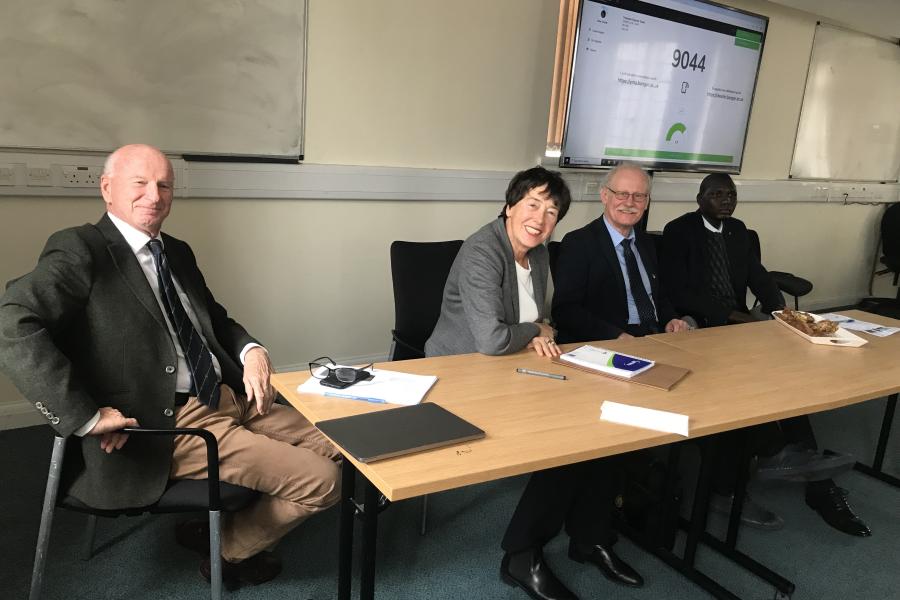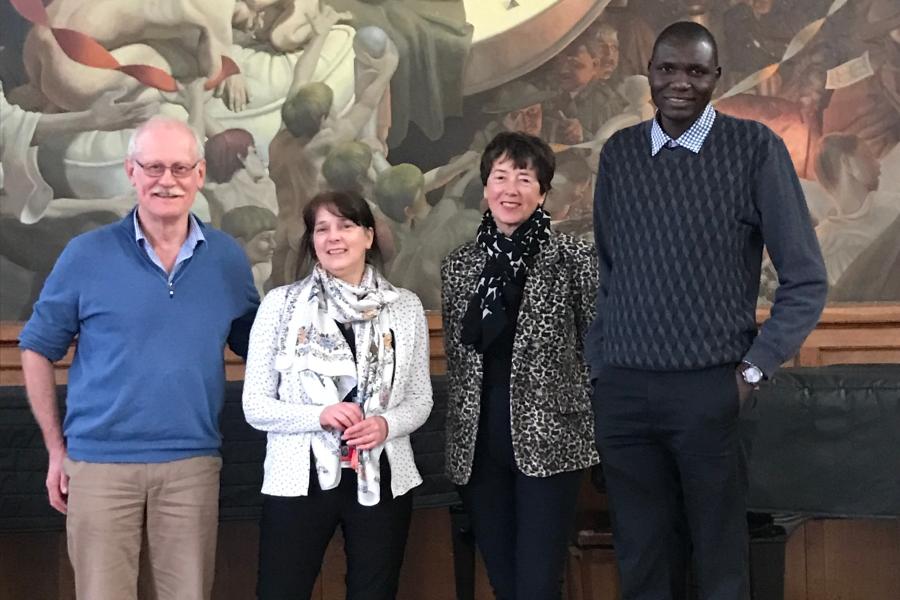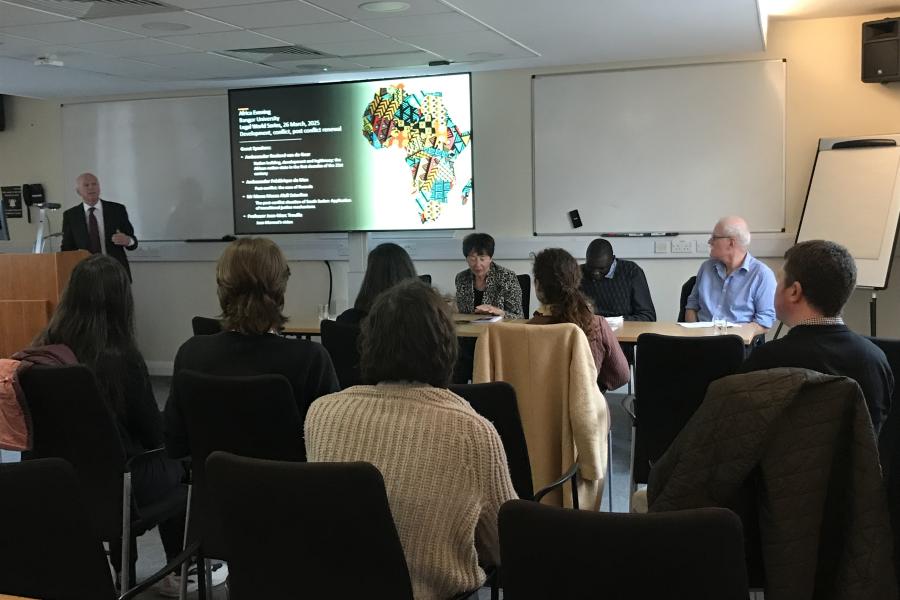
Marie O'Leary, acting Principal Counsel at the Office of Public Counsel for the Defence at the International Criminal Court (ICC) spoke about the work of her Office, outlining who the Defence team are and how they work. She also discussed the importance of equality of arms between prosecution and defence, and fair trial rights at the ICC, and about broader issues of cooperation between states and the ICC.
Nathalie Thomas, a Lebanese-qualified law graduate who works in the department of Modern Languages at Bangor University and an early career researcher with a research interest in the application of transitional, restorative, and retributive justice and their limitations in post-war societies, explored the work of the Special Tribunal for Lebanon. She focussed on the very distinctive character of that Tribunal, which sets it apart from others, in that it was essentially established to prosecute one specific crime of terrorism, the attack on Rafic Hariri, the former Lebanese prime minister.

Emma Skehan, Kosovo Specialist Chambers (KSC) Media and Outreach Assistant, shared her insights in the working of the KSC, and gave valuable updates on the progress of the current hearings. She explained how the tribunal was established via support from the Council of Europe and the European Union, sits in The Hague, and has an international staff drawn only from EU and other contributing states.
Dr Dmytro Koval, associate professor at Kyiv-Mohyla Academy, Ukraine, Legal Director at Truth Hounds, and member of the international advisory council of the Prosecutor’s General Office of Ukraine gave a detailed exposé about the prospect of prosecutions for Russian acts of aggression and war crimes in Ukraine, citing specific articles of Ukraine domestic law and international criminal law, and referencing the possibility of prosecutions via universal jurisdiction.
The high point of the programme was a mini conference addressed by Ambassadors Roeland van de Geer and Frederique de Man, UN peace worker Mawa Saturlino and Jean-Monnet Professor Jean-Marc Trouille, where specific issues relating to rebuilding communities after conflict were analysed, examining these through the lens of regional integration. The panel also addressed a gathering at an Africa Evening organised by the Legal World Series.
The students were very appreciative of the programme of talks, and it was tremendously rewarding to see their commitment and engagement with these additional sessions:
Dorianne Cattoen: 'The optional sessions really complemented the material studied during classes. Those optional sessions gave us the opportunity to hear and discuss with captivating speakers in diverse areas.'
Nathalie Thomas: 'The Legal World Series was an innovative way to engage the students with their future and the vast employment potential that exists in the domain of International Criminal Law and International Human Rights. The huge variety of speakers brought a rich perspective to the course. It allowed the students to further understand International Law and its application past and present and see the theories put into practice. Such series are unique to Bangor, and I felt very honoured and proud to take part in them. Dr. Trouille’s expertise was essential to their success and their effect will no doubt generate more interest in this area of Law.'


